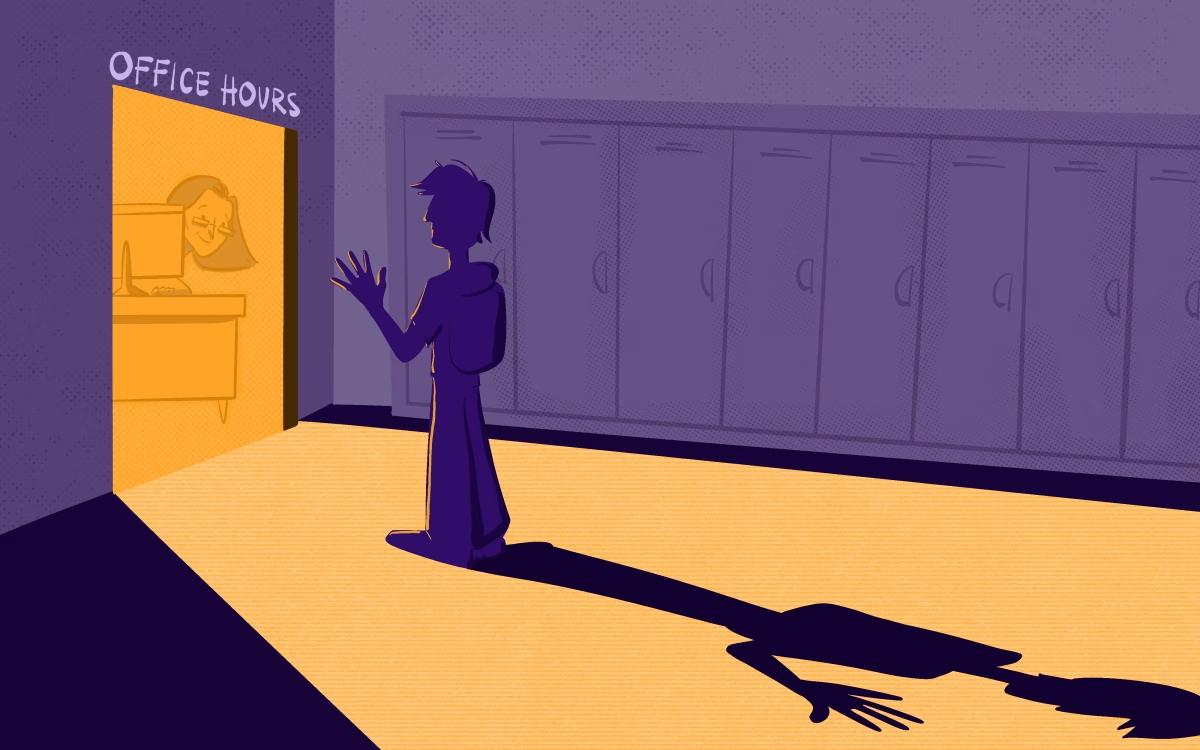Brandon Lopez, an adjunct animation instructor in DePaul’s School of Cinematic Arts, reserves one class per quarter where students can show up in their favorite cosplay, play games and make tier lists of Disney movies without the stress of school weighing them down.
Lopez hopes to bring everyone together and make the learning environment more comfortable, helping to close what some see as a communication gap between professors and students.
“I took the time to say, ‘Hey let’s just do nothing since you guys have been working pretty hard,” Lopez said
Stefanie Demetriades, a DePaul professor in the College of Communication, spoke with her students this quarter about the gap that both professors and students can feel when trying to understand one another.
She says the traditional higher education model can sometimes create a power dynamic that can make professors feel inaccessible.
Demetriades is among those who want to make the university setting as productive and engaging as possible.
“One of the places where there can be a gap is around the expectation of what a professor’s role is and what a student’s role is,” Demetriades said.
In one of her classes, Demetriades asked her students, “What do you wish your professors knew about you?”
Senior Muhammad Umer answered that he wishes professors knew “the background where (students) come from,” and added that “it makes it easier for professors to understand what we may have experienced or not.”
Demetriades said she and other professors often see themselves as a resource for students, not only for knowledge but also for emotional support. She said that also means creating a learning environment in which students can voice opinions and be honest with one another.
Olya Glantsman, a DePaul psychology professor, said engagement with students could also be correlated to teachers not being as approachable as they could be.
With a rapport between students and teachers, she said there might be an opportunity to be inclusive and more fully invested in the class.
“If you don’t feel connected, it is easy to lose a student,” Glantsman said. “That personalized connection is so important.”
The Covid-19 outbreak and ensuing lockdown completely reformatted how schools operated. Prior to the pandemic, students and professors interacted and shared ideas in a comfortable physical space. During the pandemic in 2020-2021, classes were forced to be online.
For those starting or ending the next parts of their education careers, the pandemic may have impacted learning habits, according to Glantsman.
“Engagement has been a problem for as long as we can remember,” Glantsman said. “It’s not a completely new issue, but Covid did not help.”
Demetriades said it’s also important to understand that students and professors are not automatically engaged simply because they are together, in person or online. She said both sides have to make a conscious effort to be there.
“I don’t think that connection just happens magically,” Demetriades said. “It takes work.”
Certainly, students are there to learn from professors who know the subject, but breaking down barriers is valuable, said Demetriades, who keeps cookies and tea in her office to encourage communication with her students.
“Nothing is more exciting than an excited student who wants to talk about something,” Demetriades said.
By the end of Lopez’s class, he said everyone was talking and having fun. Students who had never spoken up in class had finally begun to come out of their shells.
Lopez said that once the competitive aspect of education is gone,he and his students connect in new ways.
“Passing and failing is secondary to learning those interpersonal skills,” Lopez said. “Working with other people, talking to other people, making friends, being happy with doing your own thing and other people doing their own thing too, is core college life.”
Related Stories:
- DePaul Art Museum unveils two Chicago-focused exhibits
- Student Mosaic Maker
- International Puppet Theatre Festival
Support Student Journalism!
The DePaulia is DePaul University’s award-winning, editorially independent student newspaper. Since 1923, student journalists have produced high-quality, on-the-ground reporting that informs our campus and city.
We rely on reader support to keep doing what we do. Donations are tax deductible through DePaul's giving page.


